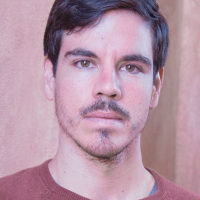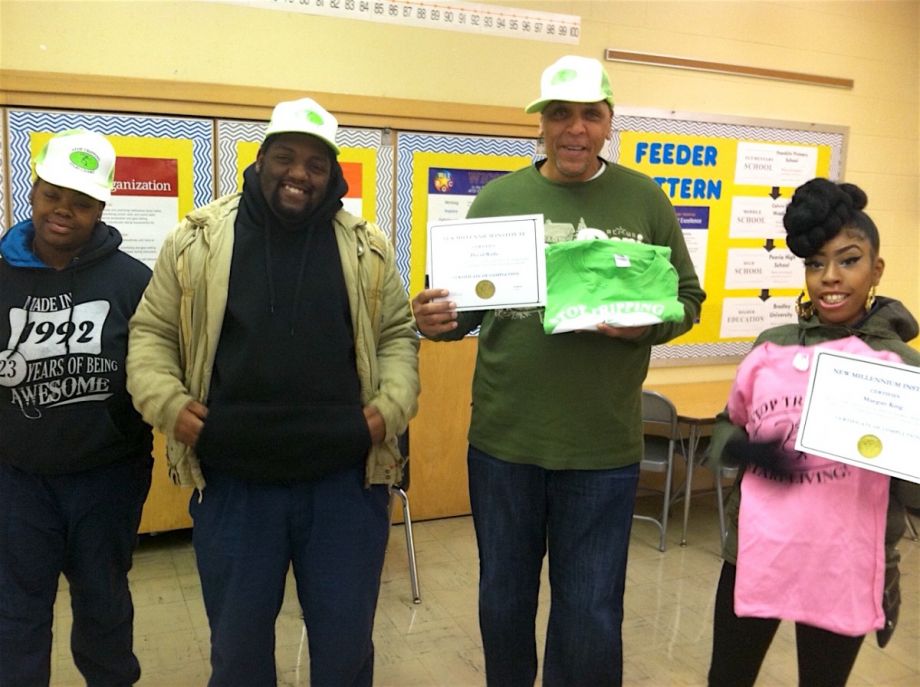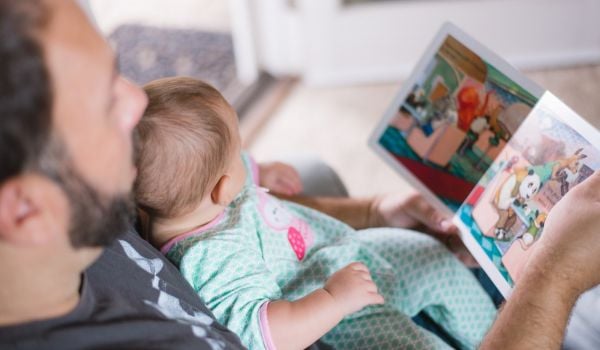In most major U.S. cities, you’ll find at least two kinds of career programs: municipal ones that are funded in part by the U.S. Department of Labor, and those that are backed by a web of organizations and community colleges that swap resources and money.
But in Peoria, Illinois, there’s one bare-bones nonprofit that’s trying to get the city’s underemployed ready for the career world with only a handful of donations, a small classroom at a community center and a couple of sponsorships from local employers. It’s called the New Millennium Institute, and its founder, Agbara Bryson, started it after a long career mentoring students of color at the Illinois Community College.
Bryson, who has a master’s degree in social sciences, says it all sprung from a conversation he was having with the college’s now-retired president John Erwin.
“He said that he could only count on his one hand the amount of African American males that worked at the college,” remembers Bryson. “He wanted more black male employees, but when you started looking at students, the dropout rates were highest among African-American males.”
Bryson created the Harvesting Dreams program as a response. It’s a series of after-school and lunch-hour classes that were free to attend for youth of color. They’d discuss the history of slavery, perspectives on masculinity and the struggles that African-American males face in U.S. society today.
The program was a push to help young black men understand their path so they could better navigate their future. “We’re talking about socially, emotionally and academically preparing them [for life after college],” he says. “And we had great success, and provided tutoring to individuals who came in, individuals who were on work release, needed community service hours.”
He ran Harvesting Dreams for 15 years. But although it’s still up and running at Illinois Community College and has since been adopted by Carl Sandburg College, a community college in Galesburg, Illinois, Bryson says he got to a point where he wanted to spread its impact to the communities around the campus.
Even before kids got to college, “there were homicides, high school dropouts, high school murders. I knew that the bulk of that had to do with the lack of economic opportunities,” he says.
Last year, Peoria was named the worst metropolitan area in the United States for black populations by financial news site 24/7 Wall Street. The reasoning: No other city has a greater prosperity divide between white and black communities, based on data from the U.S. Census Bureau, the Centers for Disease Control and Prevention and incarceration data from The Sentencing Project.
The key points from that article: The percentage of black citizens in poverty is quadruple that of white citizens in poverty; black citizens are about nine times more likely to end up in jail; the median income among black communities is just below half of the median income among white communities.
None of that’s news to Bryson, who grew up in the Taft public housing buildings at the north end of downtown Peoria. They became embroiled in race-related riots in the late 1960s after police were accused of forcefully arresting a 16-year-old pregnant black woman from one of the buildings for allegedly throwing rocks at cars.
But despite the unsolved history of racial tensions in the region that have bled into the present, Bryson’s New Millennium Program, which he says has placed about 35 of its 40 participants into jobs or education programs, is all about making students take control of their personal lives.
“The 30 employers I work with basically have the same message: There’s not a shortage of jobs, we just can’t find job applicants,” says Bryson. “That means teaching them soft skills, how to interview, how to communicate, but more importantly how to show up every day and show up on time.”
His push is to help individuals “challenge their self-handicapping behaviors.” Once they pass through his two-and-a-half-week boot camp, he then refers them to construction unions, retail employers or the city jobs program, Career Link. Or, if the trade they’re interested in requires a bit more training, he sends them to vocational or technical institutions like the Illinois Community College.
The biggest impact he has, he says, is through building trust with his students. That opens up new doorways to reach new people who may have never reached out for help in the first place.
He just started working with his most recent cohort on Jan. 17. After the first class, one of his participants started bringing in his niece, who had a black eye from a domestic violence dispute, so that Bryson could help her prepare for a new life away from her partner.
“Most of the comfort zones [for students] involve poverty, crime, drugs, alcohol, a history of being unsuccessful,” he says. “But instead of feeling hopeless, they now feel hopeful. They realize they have the power, because they now feel competent, and are able to come out of those comfort zones.”
The Equity Factor is made possible with the support of the Surdna Foundation.

Johnny Magdaleno is a journalist, writer and photographer. His writing and photographs have been published by The Guardian, Al Jazeera, NPR, Newsweek, VICE News, the Huffington Post, the Christian Science Monitor and others. He was the 2016-2017 equitable cities fellow at Next City.

















